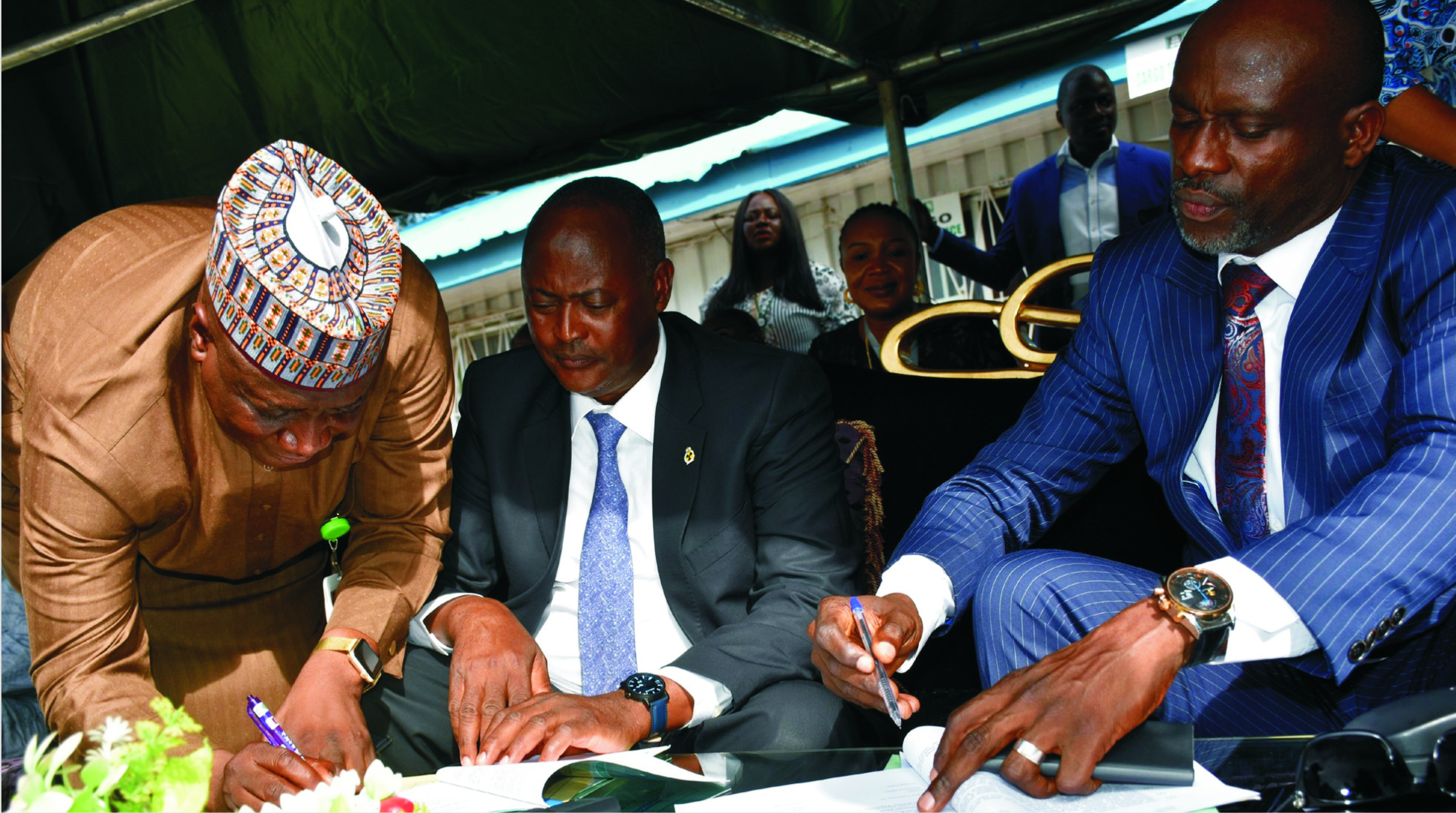Business
N25.7trn Debt: Experts Oppose IMF’s Call For Tax Hike

Finance experts have disagreed with the International Monetary Fund’s latest recommendation to the Federal Government to raise its tax rate in order to meet Nigeria’s huge amount spent on debt servicing and developmental projects.
The Federal Government spends an average of N2tn annually servicing its debt obligation to local and foreign creditors.
About $3 trillion is reportedly needed in the next 30 years to address the country’s infrastructure deficit.
But the IMF last Wednesday called for an effective debt management strategy that would ensure that the amount borrowed posed limited risk and the funds deployed for developmental purposes.
The global body said that with Nigeria having one of the lowest tax revenue in the world, it would be challenging to service its debt obligations without broadening the fiscal space.
The nation’s total public debt rose by N3.32 trillion in one year to N25.7 trillion as at the end of June 2019, the Debt Management Office said last Tuesday.
The Federal Government owed N20.42 trillion as of June 30, 2019 while the 36 states and the Federal Capital Territory had a total debt portfolio of N5.28 trillion.
Shedding more light on how the Federal Government could boost revenue, Cathy said the priority was how to increase non-oil tax revenue.
She said this was vital based on the fact that the country’s interest payments as a share of tax were very high.
She added: “On Nigeria, the priority is a comprehensive reform to increase non-oil tax and there are a number of reasons this will contribute to creating space for important spending in infrastructure and human development spending.
“For Nigeria, this is very important for a number of reasons. One, because right now, interests payment as share of tax are very high around a third of overall and two-thirds for the Federal Government.”
Responding, a Professor of Economics at the Olabisi Onabanjo University, Ago Iwoye, Sheriffdeen Tella, said the advice to raise tax had to be analysed to determine whether the IMF was asking Nigeria to increase tax or widen the tax net to accommodate those that are not currently captured.
He said: “If they are advising that we should keep increasing tax, that will not be proper. The economy of Nigeria is currently weak and tax is a function of the income of the people. Increasing tax will be putting too much pressure on income.
“We should rather talk of reschedule the existing loan to enable us to have a longer time to pay or pay less. In addition to this, we need to widen the tax net.”
On his part, the Director General of the Lagos Chamber of Commerce and Industry, Mr Muda Yusuf, pointed out that economic growth through reforms would happen if there was greater commitment to creating an enabling environment for investors.
He said the tax paying segment of the economy had been victim of regulatory and policy shocks in recent years.
”Monetary policy is tight enough in my view. Calling for more tightening will be overkill. Lending rates are high and government borrowing continues to have a crowding out effect on the private sector. We need to push back on portfolio flows as the pillar for stabilising the forex market. I subscribe to the demand for the rationalisation of the multiple forex windows and rates, he said.”
A former President, Association of National Accountants of Nigeria, Dr Sam Nzekwe, noted that many Nigerian businessmen were not paying taxes except workers, whose taxes were being deducted from their salary.
He said: “They should be proactive, go to the people and widen the tax net, they should bring those who are not paying tax into the tax net.”
The Chief Executive Officer, Enterprise Stockbrokers, Mr Rotimi Fakayejo, said the advice given by the IMF to Nigeria was not progressive because it would impair productivity of businesses.
Business
NCDMB, Jake Riley Empower 250 Youths On Vocational Skills

Business
NUJ Partners RSIRS On New Tax Law Education

Transport
Nigeria Rates 7th For Visa Application To France —–Schengen Visa

-

 Maritime15 hours ago
Maritime15 hours agoCustoms Hands Over Seized Cannabis Worths N4.7bn To NDLEA
-

 News18 hours ago
News18 hours agoNLC Threatens Nationwide Protest Over Electoral Act Amendment
-

 Politics15 hours ago
Politics15 hours agoI DEFECTED OUT OF CONVICTION …NO ONE COULD’VE IMPEACHED MY LATE DEPUTY ~ DIRI
-

 Maritime16 hours ago
Maritime16 hours agoOver 6,223 Seafarers Abandoned In 2025 – Says ITF
-

 Sports14 hours ago
Sports14 hours agoArsenal Women End Man City’s Invincibility
-

 Environment13 hours ago
Environment13 hours agoRivers State Government Suspend Fire Service Collection Levies
-

 Sports14 hours ago
Sports14 hours agoU-20 WWC: Falconets claim qualifier win
-

 Politics15 hours ago
Politics15 hours agoWe’ve Not Recognized Any PDP Faction — INEC

